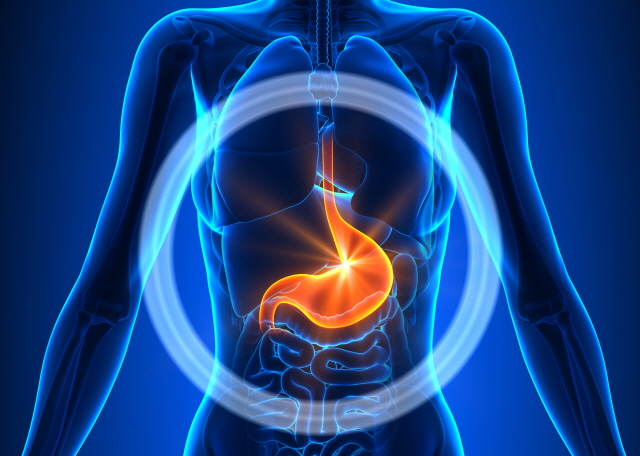
Comparing Huang Qin, Da Huang, Mang Xiao, Hou Po, and Zhi Shi
By Daniel Cho, L.Ac. (email: c0454445@gmail.com)
In this issue, we will study various herbs used for gastrointestinal disorders based on symptoms. Since gastrointestinal problems are common in acupuncture clinics, this knowledge is expected to be helpful in clinical practice.
Huang Qin: Symptom Indicator Score +, Frequency of Use +++
Possible symptoms
‑Heat Diarrhea: soft/loose stools or diarrhea is often induced by intake of spicy or greasy foods
‑Sometimes indigestion due to overeating may appear in formulas such as Xie Xin Tang, Da Chai Hu Tang, Ge Gen Huang Lian Huang Qin Tang, and Huang Qin Jia Ban Xia Sheng Jiang Tang.
‑Sometimes, redness and heat due to localized acute inflammation may appear.
TIP: There are only Possible Symptoms and no Main Symptoms. Huang Qin has a low Indicator Score, meaning its clinical tips are obscure and hard to find.
Da Huang: Symptom Indicator Score++, Frequency of Use++
Main Symptoms: Without proper daily bowel movement, the level of discomfort caused by constipation, stomach gas and distension would be high.
Possible Symptoms
‑Excessive Types (obese, well-built, with solid stamina, good appetite, frequent overeating) with normal stool or mild constipation.
‑Tumorous disorders with heat and yellow pus, external signs of stagnated blood, fever, delirium, and psychotic tantrums due to febrile diseases.
‑Preference for diarrhea to constipation because emptying their bowels would feel much better
‑Stomach gas and pain due to constipation may also occur.
Cautions: It would be best if you were careful with using Da Huang for people who are underweight, quickly tired or exhausted, with low appetite, weak stamina, and frequent soft/loose stools or diarrhea.
Mang Xiao: Symptom Indicator Score++, Frequency of Use+
Main Symptoms: Without regular daily bowel movements, the patients might experience significant discomfort from constipation, gas, and bloating.
Possible Symptoms: Indigestion due to overeating. (Tao Wei Cheng Qi Tang, Ju Pi Da Huang Po Xiao Tang, or sometimes Tao Ren Cheng Qi Tang).
Cautions: It would be best if you were careful with using Mang Xiao for people who are underweight, weak, with low appetite, loose stools or diarrhea, and fatigue and heaviness of the body worsened by diarrhea.
TIP: Mang Xiao’s clinical signs are similar to Da Huang’s. Mang Xiao is often used with Da Huang to enhance its effects.
Hou Po: Symptom Indicator Score ++, Frequency of Use ++
Abdominal Symptoms
‑Main Symptoms: Bloating, distention, and discomfort.
‑Possible Symptoms: Stomach pain (due to gas and retention in the abdominal area).
Chest Symptoms
‑Main Symptoms: Chest fullness, Shallow breathing (mild asthma).
Zhi Shi: Symptom Indicator Score ++, Frequency of Use ++
Abdominal Symptoms
-Main Symptoms: Stomach gas, distention, and discomfort.
‑Possible Symptoms: (Due to stomach gas) stomach pain, mild indigestion, and constipation.
Chest Symptoms
‑Primary Symptom: Chest fullness.
‑Possible Symptoms: Chest tightness and pain.
CAPE Yin Personality, depression is the primary emotion.
Gan Jiang vs. Huang Qin
|
Gan Jiang |
Huang Qin |
|
Cold Diarrhea |
Heat Diarrhea |
|
Soft/Loose stools or diarrhea are caused by the abdominal cold, the intake of cold foods or drinks, icy beer or milk. |
Soft/Loose stools or diarrhea are caused by spicy, greasy, or slightly spoiled foods. |
Zhi Shi vs Hou Po
|
Zhi Shi |
Hou Po |
|
Decreased contraction movement of the GI tract. |
It decreased dilation movement of the GI tract. |
|
Fullness of the stomach or the chest |
|
|
+sometimes mild indigestion, constipation. |
+sometimes: shortness of breath. |
































